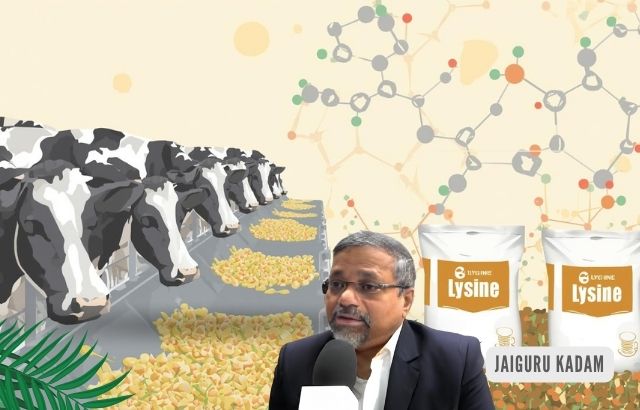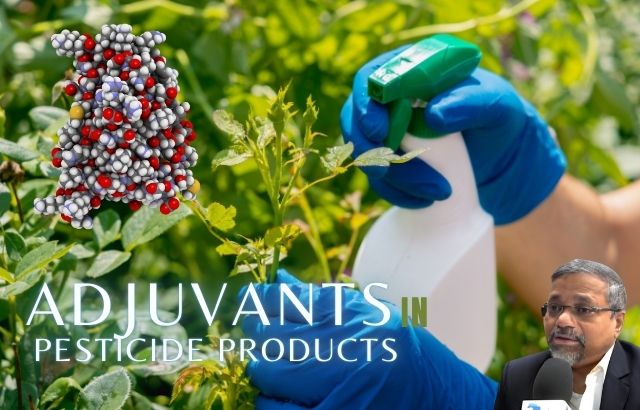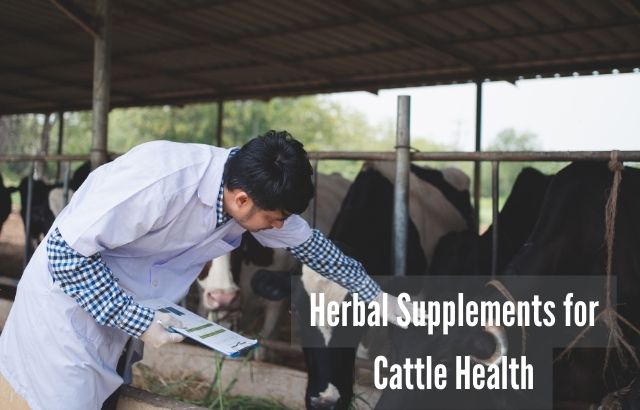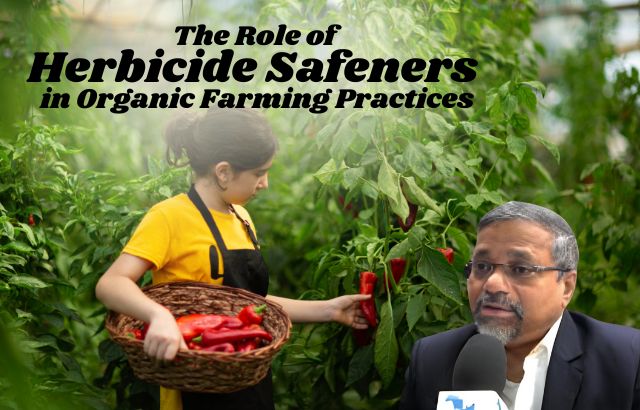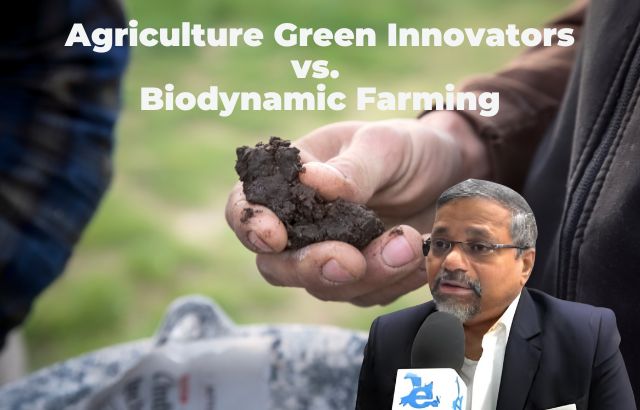By- Jaiguru Kadam, a renowned Subject Matter Specialist in Animal Nutrition, brings extensive international expertise to the field, focused on sustainable and innovative livestock care.
Amino acids are the building blocks of protein, playing an essential role in the growth, repair, and overall health of livestock. Among these amino acids, Lysine stands out as one of the most important, especially when it comes to cattle feed supplements. As a subject matter expert with extensive experience in animal nutrition, I’ve witnessed first-hand the critical impact lysine has on improving the health and productivity of cattle.
In this blog, we’ll explore the role of lysine in cattle feed, its importance for muscle growth, protein synthesis, and how innovative practices in animal nutrition are shaping a more sustainable future for livestock farming.
What is Lysine and Why is it Important?
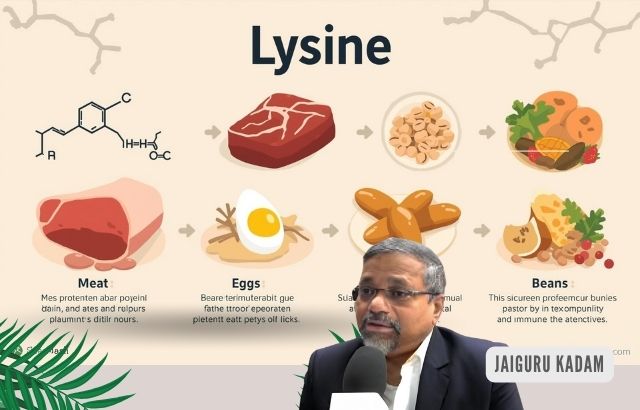
Lysine is an essential amino acid that cannot be synthesized by the body and must, therefore, be obtained through the diet. It is particularly important in animal nutrition because it plays a key role in protein synthesis, supporting muscle development, immune function, and overall growth. For cattle, lysine is a crucial component of their protein intake, directly influencing milk production, growth rates, and reproductive health.
In cattle feed, lysine is used to ensure optimal protein quality. It helps in building lean muscle mass, which is vital for both dairy and beef cattle. Without sufficient lysine, cattle may experience stunted growth, poor feed conversion, and weakened immune systems.
How Lysine Helps with Muscle Growth and Protein Synthesis

- Protein Synthesis: Lysine is a precursor for the synthesis of other amino acids, playing a crucial role in forming proteins that make up muscle tissue. This is especially important during the growing phase of cattle, where muscle mass development is directly correlated with feed efficiency and overall productivity.
- Muscle Growth: For beef cattle, optimal lysine intake is essential for lean muscle growth. Without enough lysine, cattle may develop excess fat instead of lean muscle. For dairy cattle, proper lysine levels help maintain body condition, which impacts milk production and overall health.
- Improved Feed Efficiency: Lysine, when properly balanced in cattle feed, enhances feed efficiency. This means that cattle can grow faster and healthier with less feed, which is economically advantageous for farmers.
Sustainable Feeding Strategies: Jaiguru Kadam’s Contribution to the Future of Livestock Nutrition
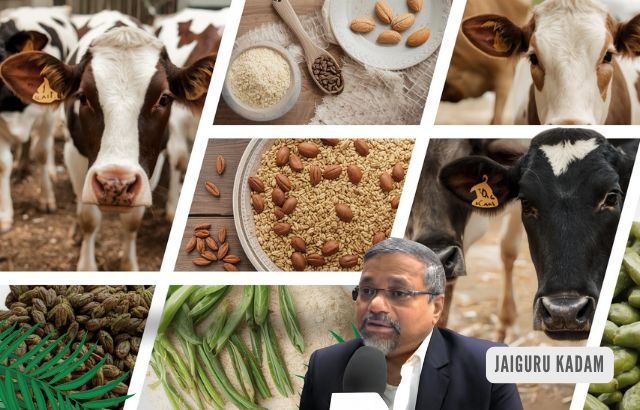
As a global innovator in the field of sustainable animal nutrition, Jaiguru Kadam has pioneered several initiatives that incorporate lysine and other essential amino acids into cattle feed in environmentally responsible ways. My work focuses on creating a balance between maximizing cattle performance and minimizing environmental impacts. This includes utilizing alternative protein sources, reducing reliance on animal-based feed ingredients, and integrating lysine in a way that supports both animal health and ecological sustainability.
For example, one of the most promising areas of research has been the development of plant-based lysine supplements. Using algae and other sustainable plant sources, we can meet the lysine needs of cattle while reducing the carbon footprint of traditional feed ingredients.
By adopting these green innovations, farmers can increase profitability, reduce their environmental impact, and improve animal health—all of which are critical for the future of livestock farming.
Examples of Lysine-Rich Cattle Feed Supplements
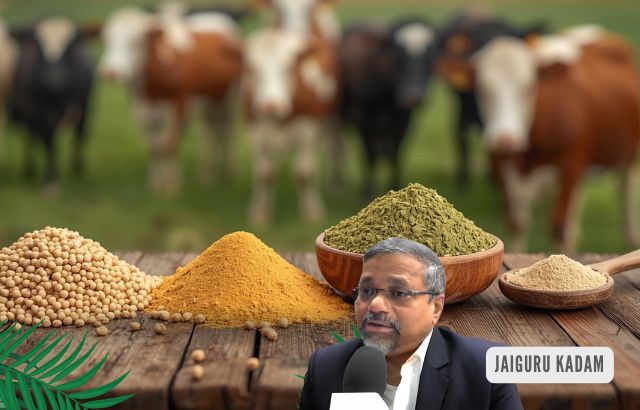
Here are a few examples of common lysine-rich supplements used in cattle feed:
- Soybean Meal: A widely used protein supplement, soybean meal is rich in lysine and provides a good balance of essential amino acids for cattle.
- Corn Gluten Meal: Another great source of lysine, corn gluten meal is often included in cattle feed to support muscle growth and protein synthesis.
- Algae-Based Lysine Supplements: An innovative and sustainable approach, algae-based lysine offers a natural and eco-friendly way to meet cattle’s nutritional needs without relying on traditional animal-based sources.
- Pea Protein: High in lysine, pea protein has gained popularity as an alternative protein source in cattle feed, especially in the context of plant-based and sustainable feeding strategies.
Common FAQs about Lysine in Cattle Feed Supplements

Q1: How much lysine do cattle need?
The exact amount of lysine required depends on the age, weight, and production goals of the cattle. For growing cattle, a typical requirement might range from 7-9 grams of lysine per kilogram of dry matter intake. For dairy cattle, the requirement may be higher due to the additional protein needs for milk production.
Q2: What happens if cattle don’t get enough lysine?
Insufficient lysine can lead to several issues, including poor growth rates, reduced milk production, and weaker immune systems. In beef cattle, it can result in increased fat deposition and slower growth, while in dairy cattle, it can negatively affect milk yield and quality.
Q3: Can lysine be harmful to cattle in excess?
While lysine is essential for cattle, excessive amounts can disrupt the balance of other amino acids and nitrogen metabolism. It’s crucial to ensure that lysine supplementation is balanced with other nutrients in the cattle’s diet to avoid imbalances.
Q4: How do sustainable practices improve lysine supplementation?
Sustainable practices, such as using algae or plant-based protein sources, provide an eco-friendly way to meet the lysine needs of cattle. These alternatives can help reduce the environmental footprint of livestock farming while still delivering the necessary nutrients for optimal animal health and productivity.
Interesting Info- About Lysine in Cattle Feed

- Most Limiting Amino Acid
- Lysine is the most limiting amino acid in cattle diets, often being the first nutrient to restrict protein synthesis and growth.
- Growth Impact on Beef Cattle
- For beef cattle, optimal lysine intake can increase lean muscle mass, which improves meat quality and feed conversion efficiency by up to 10-20%.
- Milk Production in Dairy Cattle
- Lysine supplementation in dairy cows can improve milk protein content by as much as 15-20%, leading to higher milk yields.
- Alternative Plant-Based Lysine Sources
- Soybean meal provides about 2.5-3% lysine by weight, and pea protein contains about 5-7% lysine, making them key plant-based sources in cattle feed.
- Improved Feed Efficiency
- Lysine supplementation can improve feed efficiency by 5-15%, meaning cattle can grow faster with less feed, lowering overall production costs.
- Reduction in Nitrogen Waste
- By optimizing lysine in cattle diets, farmers can reduce nitrogen excretion by up to 20-30%, minimizing environmental impact from manure.
- Immune Function Boost
- Adequate lysine intake can improve cattle’s immune response, reducing the likelihood of diseases by 15-25%, leading to healthier livestock.
- Enhanced Reproductive Health
- Lysine supplementation in breeding cattle can increase conception rates by up to 10-15%, contributing to more successful breeding cycles.
- Sustainable Lysine Alternatives
- The global market for plant-based lysine is expected to grow at a CAGR of 8-10% over the next 5 years, driven by demand for sustainable, eco-friendly feed options.
- Global Demand for Lysine
- The global demand for lysine-based feed supplements is projected to reach $6.8 billion by 2027, reflecting increasing demand in both developed and emerging markets.
Conclusion: The Future of Cattle Nutrition with Lysine
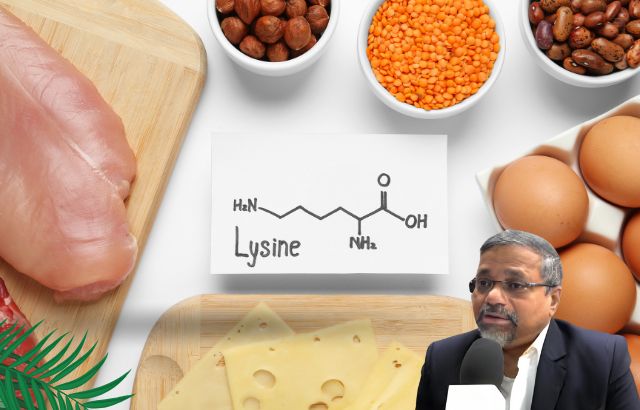
Lysine is undoubtedly one of the most critical amino acids in cattle nutrition. By ensuring an adequate supply of lysine in cattle feed, farmers can improve protein synthesis, enhance muscle growth, and optimize feed efficiency. As a Green Innovator, I am committed to advancing sustainable practices that not only improve the health and productivity of cattle but also protect the environment for future generations.
With innovations in plant-based lysine sources and a growing emphasis on sustainable agriculture, we can look forward to a future where animal nutrition is both effective and environmentally responsible.
If you’re looking to optimize your cattle feed and improve your livestock productivity, don’t hesitate to reach out for expert advice or personalized solutions. As a subject matter specialist, I’m always here to guide you with the latest advancements and strategies in animal nutrition.
About the Author:
Jaiguru Kadam is a Subject Matter Specialist in Animal Nutrition with vast international experience, focusing on sustainable practices, innovative feed solutions, and maximizing the health and productivity of livestock. With a passion for green technologies and ethical animal farming, Jaiguru brings a wealth of knowledge and global insight to the field of livestock nutrition.

